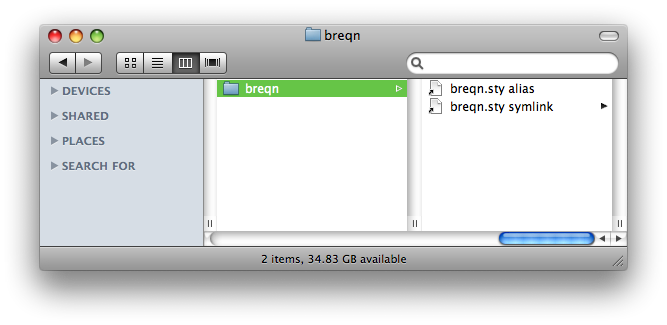News over the last little while included the staggering (to me) nugget that Apple is now the number two music retailer in America. It’s pretty inconceivable how much music this actually is, and it’s pretty damn impressive given that Apple’s only been in the music business for pretty much bang on five years.
Credit being given where it is due, I do believe that Apple has done extremely well at executing an idea that, before them, really wasn’t feasible given the restrictions of the music industry.
Michael Gartenberg’s reaction:
The question is can anyone overtake them? Or even come close?
DRM or lack thereof is not the issue that will change the game here. It’s either going to be another device that can drive consumers elsewhere (devices still drive consumers to the stores and services, not the other way around) or a totally game changing experience that re-defines how music is purchased and consumed.
Apple has clearly managed to reach a demographic with iTunes that is not particularly tech-savvy in that no-one really cares about the DRM that is being served up. For all of the noise against Apple for the low-quality and DRM-crippled files they sell, it’s worth remembering that they were the first to get unencumbered MP3s sold through a major label.
(The irony of Apple lock-in due to the labels’ demand of DRM is sweet, all the more so for it convinced the labels to drop the DRM in the first place. Online video will hopefully follow the same path, but if the future turns out to be in video rental I guess it’s not such an important point.)
Amongst those music purchasers who are both aware of DRM and leery of buying into it, the newly-constructed Amazon store seems to have gained a fair bit of mindshare. EMusic was always the crowd favourite (and online store #2 after iTunes) but against Amazon it’s hard to imagine how it can retain that lead. The big question is: after Apple finally re-negotiates with the labels to get DRM-free music across the board, will Amazon’s store retain its popularity?
Here’s where a critique of iTunes itself comes in. iTunes, as a browsing and discovering online store, is pretty woeful. If I know what I want, buying music is easy. Too easy, even. The emails I receive from Apple about new releases on the iTunes store being particularly effective of keeping my in the buying cycle.
But in terms of discovering new music in the first place, iTunes is really nothing more than a spreadsheet that plays music, in the insightful words of Ian Rogers. But do mainstream customers care? iTunes isn’t much worse than most media players around the place. Could it be better? God yes. But is it good enough? Unfortunately yes. Here’s to some vision inside Apple to improve it like they’ve improved that product that actually made them all this money: the iPod. No-one’s come close, because it’s improved at such a rate that the competitors are playing catch-up half the time.
So what about the question “Can anyone come close?” ? It’s hard to imagine in the near-to-medium future.
I originally thought that the “subscription music” model sounded pretty convincing on paper. Literally all music (that has been licensed online) unrestrictedly available to listen whenever you like? What’s not to like? Well, a monthly fee, I guess. If you buy less than one album a month that you’ll seriously be interested in an listen to, well, forever, then paying a monthly fee isn’t really worth your while. Especially when your music goes kaput when you stop paying your fees. Over a five year period you’re better off buying your music outright (for some definition of “buying” and “outright”). Broadly speaking.
I don’t really have a closing argument to all of this. I’m strongly in favour of buying digital things. Particularly ones that don’t lock me in so that five years later I’ve got gigabytes of encrypted junk that is no longer playable. Music is crossing into that sweet spot and Apple’s in a damn good position to sell yet more and more of it. Hopefully things just get better here on in.

